News Feed
Pakistan PMO Says IMF Has Approved $1 Billion Loan
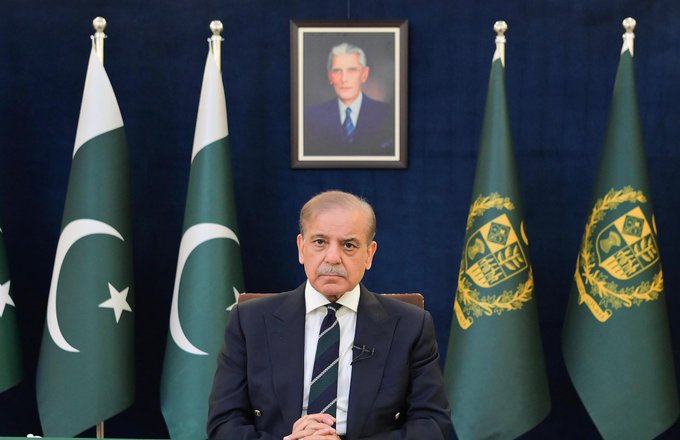
The Pakistan PMO has announced that the International Monetary Fund (IMF) has approved an immediate $1 billion loan tranche. This comes as part of a larger $7 billion loan program aimed at helping Pakistan overcome its economic challenges. The approval marks an important step in Pakistan’s effort to stabilize its economy and attract investment.
Prime Minister’s Office of Pakistan
Table of Contents
IMF Loan Approval and Its Importance
The IMF Executive Board agreed to release $1 billion to Pakistan right away. With this disbursement, Pakistan has now received a total of $2 billion under the ongoing loan facility. The funding is meant to support Pakistan’s efforts in controlling inflation, stabilizing the currency, and restoring investor trust. This new loan tranche is crucial for Pakistan as it faces various economic issues. It provides the government with the necessary funds to pay off some external debts and meet urgent fiscal needs. The $7 billion program aims to bring long-term stability while pushing forward key reforms.
Important Details About the Loan
- Approved amount: $1 billion tranche
- Total disbursed so far: $2 billion
- Overall loan package: $7 billion under Extended Fund Facility (EFF)
- Purpose: Stabilize macroeconomy, control inflation, boost investment
- Climate facility loan: $1.3 billion approved in March 2025 for climate projects
IMF Approval Coverage
The IMF’s decision has been widely reported in reputed news outlets, emphasizing the significance of this financial aid despite regional tensions. To read more about the IMF’s approval and Pakistan PMO’s announcement, see:
- IMF Approves Disbursement Of $1 Billion Loan To Pakistan – NDTV
- IMF approves $1 billion disbursement to Pakistan, says PM Shehbaz Sharif’s office – Hindustan Times
These articles highlight how the IMF maintained a neutral stance amid India-Pakistan tensions and underscored faith in Pakistan’s reform efforts.News
Pakistan’s Economic Challenges and IMF Support
Pakistan’s economy has been under strain due to rising debt levels, inflation, and external pressures. The country has faced difficulties in managing its finances and maintaining investor confidence. The IMF’s approval shows faith in Pakistan’s reform efforts and economic policies. Prime Minister Shehbaz Sharif welcomed the decision. He spoke about Pakistan’s strength in overcoming challenges and hinted at opposition from India. He accused India of trying to block the loan amid tense military relations but praised the IMF for making its decision fairly.

Prime Minister of Pakistan House, Islamabad
Geopolitical Factors Affecting the Loan
The loan approval happened during a period of rising tension between Pakistan and India. After a violent incident in Indian-administered Kashmir on April 22, India accused Pakistan of involvement, which Pakistan denies. This tense backdrop added pressure on the IMF’s decision.
PM Shehbaz Sharif’s Comments on Regional Tensions
- Condemned India’s attempts to delay the loan
- Praised IMF for its neutral and fair stance
- Called the loan approval a sign of trust in Pakistan’s direction

Pakistan PMO clarifies there will be no talks unless India controls its terror proxies
The Role of the IMF Loan in Pakistan’s Economic Plan
The $1 billion loan is part of a wider strategy to fix Pakistan’s economic problems. The government is working on reforms in areas such as fiscal policy and energy. The partnership with IMF requires Pakistan to meet certain milestones and conditions, ensuring funds are used to boost sustainable growth.
The Bigger Picture: Loan Program Goals
- Extended Fund Facility loan total: $7 billion
- Additional climate resilience support: $1.3 billion
- Goals: Improve economic stability, fight inflation, attract foreign investment, and handle climate risks
Public and Media Reactions to the IMF Loan Announcement
The announcement from Pakistan PMO stirred strong reactions on social media, news sites, and among the public. Many praised the IMF’s confidence in Pakistan’s economic plan. Analysts debated how regional politics might influence future aid.
Key Themes in Public and Media Response
- Positive outlook on improved economic stability
- Recognition of IMF’s support despite regional tensions
- Discussions on Pakistan managing its economic and political challenges well
- Optimism about future foreign investment and economic growth

PMO bars direct contact with Prime Minister to maintain a streamlined communication channel
How the IMF Loan Will Affect Pakistan’s Economy
The $1 billion influx of IMF funds is a major boost for Pakistan. It will ease liquidity problems and help the government meet critical payment obligations. It also supports sectors hit hard by economic stress.
Expected Economic Benefits
- Help stabilize the Pakistani rupee’s value
- Lower inflation through smart fiscal policies
- Increase foreign currency reserves
- Encourage foreign investors to enter the market
- Fund climate resilience projects for long-term sustainability

Pakistan PMO confirms IMF approval of $1 billion disbursement
Conclusion: What the IMF Loan Means for Pakistan
The Pakistan PMO’s announcement about the IMF loan signals hope for the nation’s economic recovery. Despite political tensions and financial hardships, Pakistan is gaining vital support from international partners like the IMF. This financial help not only addresses short-term needs but also pushes forward important reforms necessary for future growth. By sticking to its reform plans and cooperating with the IMF, Pakistan aims to create a stronger economy. The country is working to balance economic recovery with the ongoing regional challenges it faces.
News Feed
India Declares Any Future Act of Terror Will Be Treated as Act of War 10 MAY 2025 !
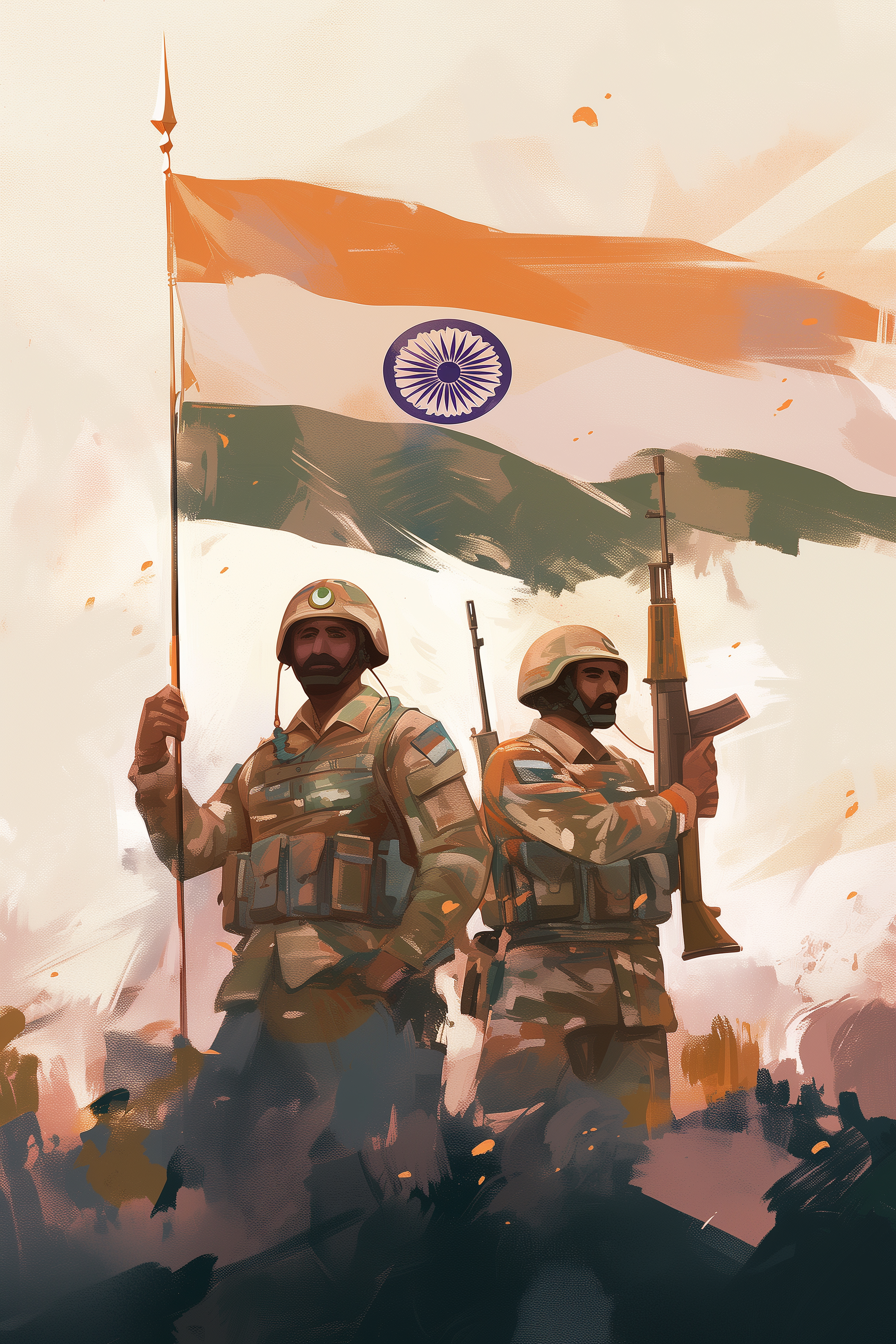
India’s Strong Response to Terrorism
India has made a bold announcement: any future act of terror on its soil will be treated as an act of war. This new stance shows India’s clear zero-tolerance towards terrorism. The decision came after a recent terrorist attack in Pahalgam, Kashmir, which caused many civilian deaths. Prime Minister Narendra Modi and the Indian government have made it clear they will protect their citizens and national security. Now, terror attacks will not just be seen as crimes but as acts that demand a military response like war. This move is a strong message, especially toward Pakistan. India holds Pakistan responsible for supporting terrorist groups that attack Bharat. By calling future terror acts acts of war, Bharat wants to stop more violence and keep the peace.
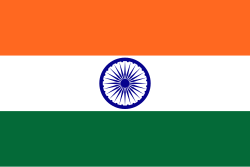
The Indian flag symbolizes the nation’s unity and resolve in protecting its sovereignty.
Table of Contents

What This Means Under International Law
Bharat declaration fits within international laws, especially Article 51 of the United Nations Charter. Article 51 gives countries the right to defend themselves using armed force if attacked. By labeling terror acts as war, India shows it may take stronger, even military, action if such attacks happen again.
Effects of Treating Terror as War
- Right to Self-Defense: Bharat can use force to strike back or stop terror groups before they attack.
- Diplomatic Tension: This could worsen relations between Bharat and Pakistan.
- Possible Legal Models: Other countries facing terror threats might follow Bharat lead.
Calling terrorism an act of war raises the stakes and allows for tougher military measures, not just police actions.News
For an in-depth analysis of India’s new stance and its alignment with international law, see this article by Business Today:
Act of War: What India’s latest warning to Pakistan means under international law
This article explains the legal framework that supports India’s policy shift and its implications on global diplomacy.
The Kashmir Attack That Sparked This Change
The recent attack in Pahalgam, Kashmir, was a turning point in how Bharat views terror threats. Terrorists targeted innocent civilians in an already tense area, causing heavy loss of life. This event was part of a series of such attacks linked to groups operating from across the border. Bharat answer is not just to seek revenge but to stop future attacks. The government promises to hold those behind these attacks responsible and to break apart terror networks that it says Pakistan supports. This shows India’s growing toughness in defending its borders and people.

Map showing the region including Kashmir, highlighting the strategic importance of the area.
Impact on the Region and Pakistan’s Reaction
Bharat stance will affect the security situation in South Asia. Bharat and Pakistan have had tense relations for years. Terrorism and cross-border incidents have made things worse.
How Pakistan Reacted
Pakistani officials criticized Bharat statement. They called Bharat claims about terror groups in Pakistan “strange.” They also accused Bharat of ignoring its own controversial actions. This back-and-forth adds pressure and makes peace talks harder.
Learn more about the escalating rhetoric and its effect on bilateral ties from this Hindustan Times report:
‘Any future act of terror will…’: Bharat big warning to Pakistan
This news article covers the official statements and regional reactions following Bharat new policy.
Social Media and Public Reactions
Bharat new policy has sparked many talks online. Social media sites and YouTube channels, such as News Today with Rajdeep Sardesai, have discussed what this means for Bharat-Pakistan relations and South Asia’s future. Common points in these discussions include:
- Worries about conflict escalation.
- Effects of military action on civilians.
- Why Bharat chose a firm stand on terrorism.
People in India mostly support the tough approach, showing frustration with repeated terror attacks and a wish for strong action.
What This Means for India’s Security Plans
By calling terrorism an act of war, Bharat is setting a clear plan based on deterrence and defense. This involves:
- Military Strength: Boosting the army and intelligence to act fast.
- Diplomatic Work: Seeking global support for fighting terrorism.
- Legal and Political Steps: Making laws stricter and improving coordination among security forces.
The goal is to stop future attacks and warn that any attack will face harsh consequences.

Iconic Gateway of India in Mumbai, representing India’s historical resilience and strength.
For a summary of the government’s policy stance and subsequent actions, see:
India to treat future terror attacks as an Act of War and will respond accordingly
This article outlines India’s plans to respond militarily to future terror attacks.
Conclusion: A New Era for Bharat
Bharat decision to treat terror acts as acts of war is a major change. It shows Bharat strong will to fight terrorism with all its power. This will affect peace and politics in the region. While it risks increasing tensions, especially with Pakistan, it also means India is serious about keeping its people safe and its borders secure. The world will watch closely to see how this new policy shapes peace and security in South Asia in the coming years.

India’s geopolitical position underlines the delicate balance of peace and conflict in South Asia.
For a broader perspective on India’s security environment and recent developments, refer to:
India declares future terror attacks will be treated as acts of war
An Economic Times piece covering Bharat latest defense posture against terror threats.
News Feed
Who is Col Sophia Qureshi, India’s Decorated Officer Briefing the World on Operation Sindoor 7 MAY ?
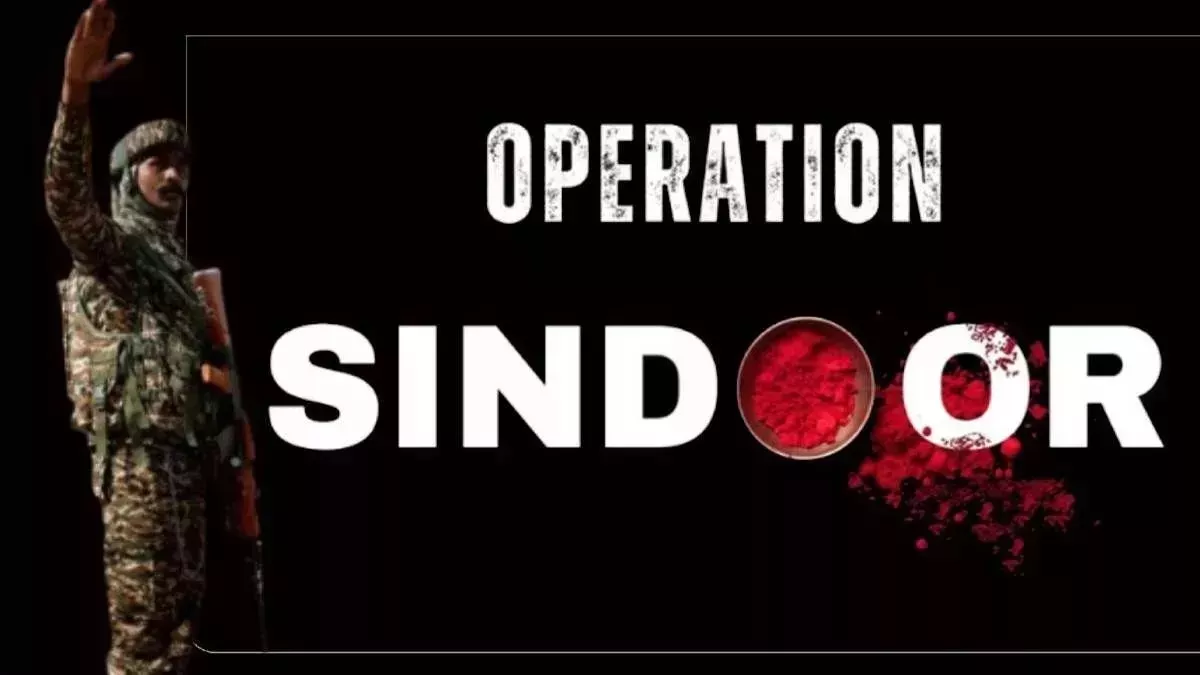
Colonel Sophia Qureshi is one of the most respected officers in the Indian Army. Known for her strong leadership and breaking barriers, she has become a key face of India’s military strength. As a senior officer in the Corps of Signals, Col Sophia Qureshi gained global attention after co-leading the media briefing on Operation Sindoor. This military operation was India’s response to the terror attack in Pahalgam. In this article, we explore who Col Sophia Qureshi is, her achievements, and her important role in modern Indian military actions.

Colonel Sophia Qureshi leads Operation Sindoor with precision and resolve.
Table of Contents
Early Life of Col Sophia Qureshi
Born in 1974 in Vadodara, Gujarat, Col SophiaQureshi grew up in a military family. This background played a big part in shaping her interest in defense work. She did not stop at just training in the military. She also earned a postgraduate degree in biochemistry, showing that she mixes strong education with military skill. Growing up with discipline and strong values helped Col Sophia Qureshi build a career based on hard work and dedication. Her balance of brains and bravery has made her a standout officer.
Col Sophia Qureshi combines academic excellence with military prowess.
Milestones and Achievements in the Indian Army
Col Sophia Qureshi is known for breaking new ground in an army environment often seen as male-dominated. Some of her key achievements include:
- First Woman Officer to Command an Indian Contingent in a Multinational Exercise:
In 2016, she led the Indian team during Exercise Force 18. This was a major multinational military drill. Her leadership here showed that women officers can hold top positions with skill and confidence. - Service in United Nations Peacekeeping Missions:
She also served in UN Peacekeeping operations, including an important deployment in the Democratic Republic of Congo. This shows her ability to work in global operations and represents India’s role in international peace.
These milestones highlight not just her personal success but also the growing role of women in India’s security forces.
Col Sophia Qureshi and Her Role in Operation Sindoor
In 2023, Col Sophia Qureshi became well known worldwide for leading the briefing on Operation Sindoor after the terror attack in Pahalgam. The operation targeted terror camps in Pakistan and Pakistan-occupied Kashmir.
- She appeared alongside Wing Commander Vyomika Singh to explain details to the global media.
- Col Sophia Qureshi outlined how the operation struck nine terror camps, showing the Indian Army’s precision and strong resolve.
- Her clear and confident communication made her the trusted face of India’s military efforts in that event.
This briefing helped the world understand India’s fight against terrorism while showing Col Sophia Qureshi’s skill in sharing military information with the public.
For insight into her leadership and the significance of the operation, watch this detailed video:
Operation Sindoor 2.0: Col Sofia Qureshi – The Nation’s Pride

Watch Colonel Sofia Qureshi discuss her role in Operation Sindoor and her contributions to Indian military operations. Moreover, her media briefing earned praise from the Supreme Court, highlighting the importance and professionalism of her presentation:
According to NDTV, the Supreme Court lauded Colonel Qureshi for co-leading the Operation Sindoor briefing, marking a significant moment for women leaders in the Indian Armed Forces.
Another comprehensive profile of her and Wing Commander Vyomika Singh can be found at Deccan Herald, putting their briefing into the larger context of women breaking barriers in the military:
Who are Wing Commander Vyomika Singh and Colonel Sophia Qureshi?
Recognition and Public Impact
Col Sophia Qureshi has earned respect nationwide and beyond:
- Her twin sister has praised her dedication and professionalism.
- News outlets and social media have highlighted her role during Operation Sindoor.
- Her visibility in the media has stirred talks about the growing role of women officers in India’s military.
These recognitions put a spotlight on how women like Col Sophia Qureshi are changing old ideas about gender in the armed forces.

Meet Colonel Sophia Qureshi: Decorated officer who is inspiring a new generation.
Impact on Women in the Indian Armed Forces
Col Sophia Qureshi’s story is a sign of changing times in the Indian Army:
- More women are now leading teams and taking on frontline duties.
- Her success inspires young women who want to join defense services.
- Her presence in major international briefings sends a message: women are an important part of the Indian Army’s future.
Her career proves that gender is not a barrier to leadership in India’s military.
Sophia Qureshi exemplifies commitment and leadership, shaping the future of India’s defense.
The Legacy of Col Sophia Qureshi
Col Sophia Qureshi is a decorated officer who stands for courage, commitment, and strong leadership. From commanding troops in major exercises to sharing complex military details publicly, she represents the new face of Indian women soldiers. Her work strengthens the idea of equal respect and chances for women in the armed forces. She is paving the way for future generations who want to serve the nation fearlessly.
News Feed
Donald Trump Wants India-Pakistan Tensions to Ease ‘As Quickly as Possible’ 10 MAY 2025
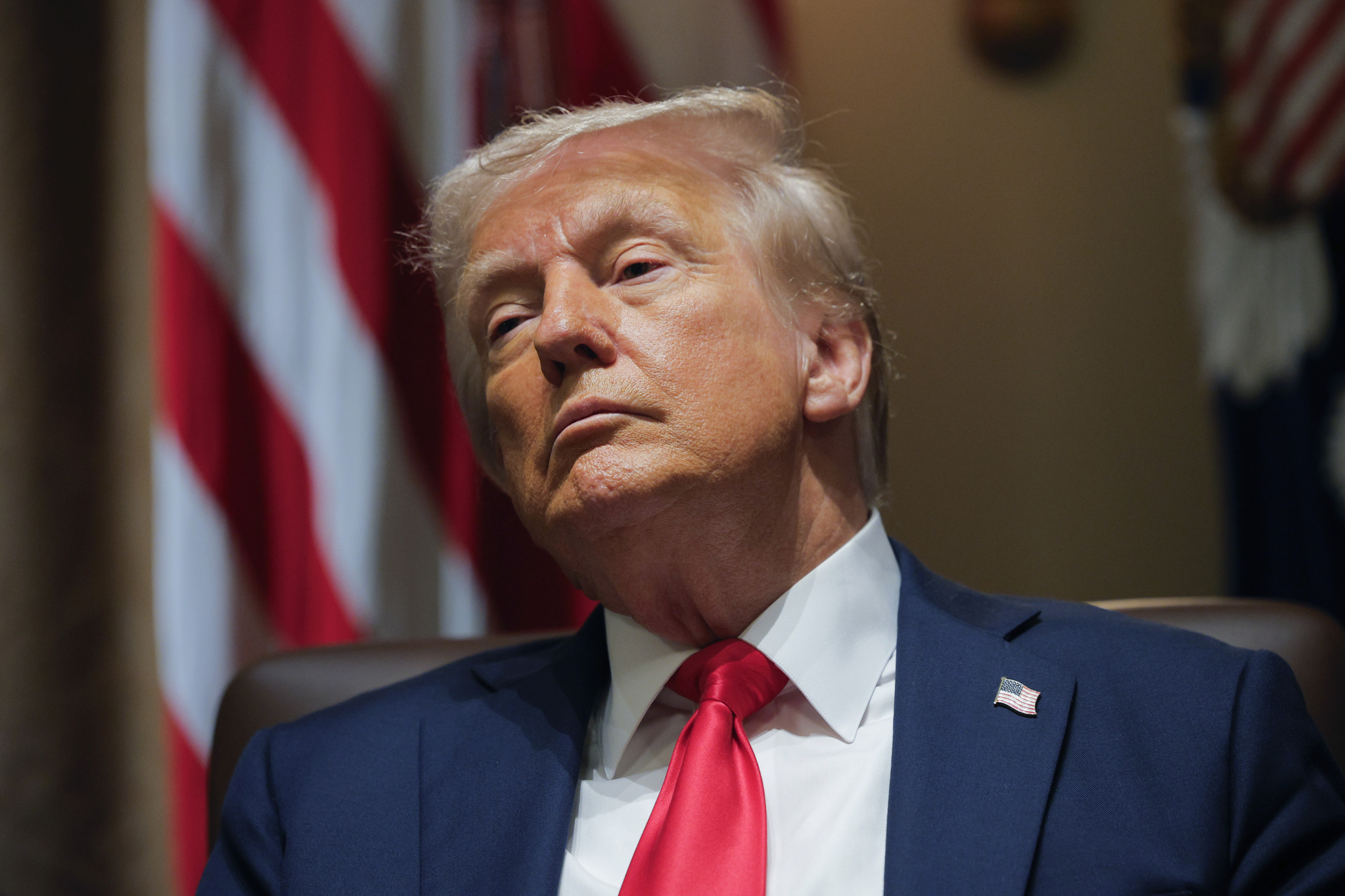
Donald Trump’s Call for India-Pakistan Peace
Former U.S. President Donald Trump has voiced a strong desire for tensions between India and Pakistan to calm “as quickly as possible.” This statement comes amid rising hostilities between the two nations. Trump’s message highlights the global concern over the fragile peace between these nuclear-armed neighbors.
Table of Contents

Donald Trump | Biography, Education The conflict worsened after India launched strikes on terror camps inside Pakistan and Pakistan-occupied Kashmir. These strikes were a response to a suicide attack in Pahalgam, Jammu & Kashmir, which killed several Indian security personnel. The situation remains tense and uncertain. Trump has offered to help ease the crisis. He said, “If I can do anything to help, I will be there.” His offer points to a possible role as a mediator, thanks to his close ties with leaders in both countries. The former president’s intervention could influence diplomatic efforts.News
Overview of the India-Pakistan Conflict and Recent Events
The India-Pakistan conflict is long-standing and deeply rooted in the dispute over Kashmir. Both nations claim the region in full but control only parts of it. Cross-border terrorism and military skirmishes have further worsened the divide. The recent flare-up started with a deadly suicide bombing in Pahalgam. India responded by targeting terror camps across the Line of Control (LoC) with airstrikes. Pakistan rejected India’s claims and stepped up its military presence along the border. Both sides exchanged strong statements, raising fears of a larger conflict. Key aspects of the current crisis include:
- Indian airstrikes targeting terror groups inside Pakistani territory.
- Pakistan’s military alerts and diplomatic protests.
- Strong public and political support for firmness on both sides.
Donald Trump’s Influence and U.S. Diplomatic Involvement
Donald Trump’s call for peace adds new energy to ongoing diplomatic talks. His friendships with Indian Prime Minister Narendra Modi and Pakistani Prime Minister Shehbaz Sharif strengthen his ability to offer help. The U.S. administration has also taken part in efforts to calm the situation. U.S. Secretary of State Marco Rubio has held discussions with leaders from both India and Pakistan. These talks aim to reduce tension and avoid further conflict. Trump’s role as a peace facilitator could pressure both countries to return to dialogue. The U.S. wants to ensure stability in South Asia, given the region’s impact on global security. For further detailed reporting on Trump’s stance and the U.S. diplomatic role, the article from Hindustan Times highlights official White House statements about Trump’s mediation offer and his desire for de-escalation:
Donald Trump wants India-Pakistan tensions to ease ‘as quickly as possible’ — Hindustan Times
Global Views and Media Focus on the Conflict
The world watches the India-Pakistan conflict closely due to the risk of nuclear confrontation. Donald Trump’s public offers of mediation have received wide attention. To gain more insight on Trump’s perspective concerning the escalating tensions, watch this succinct video exploration covering his public statements and diplomatic intentions:
Watch: President Trump’s comments on India-Pakistan tensions and his peace mediation efforts
President Trump Weighs in on India-Pakistan Tensions | Faith Nation (YouTube)
Multiple YouTube channels provide detailed updates on the situation, including military and political analysis. Social media platforms like Twitter have been buzzing with opinions and news under hashtags such as #TrumpForPeace and #IndiaPakistanTensions. Popular trends on social media include:
- Debates over the effectiveness of Trump’s peace efforts.
- Clips of Trump’s announcements and meetings with leaders.
- Expert commentary on the potential outcomes of diplomacy.
News outlets regularly update their audiences on the fast-changing developments, keeping global eyes focused on the region. The Times of India article presents a contrasting view where JD Vance remarks that the India-Pakistan conflict is “none of our business,” highlighting the differing U.S. political opinions regarding involvement:
Trump wants India-Pakistan de-escalation, says White House after JD Vance’s ‘none of our business’ remark — Times of India
Possible Outcomes of Trump’s Involvement
If Donald Trump succeeds in his efforts, there could be important changes:
- Reduced military clashes and fewer casualties.
- Better communication between India and Pakistan to avoid misunderstandings.
- Steps toward confidence-building and peace talks.
Still, deep issues like Kashmir and terrorism remain big obstacles. Any lasting peace will depend on the seriousness of both sides and willingness to negotiate.
Why U.S. Mediation Matters in India-Pakistan Relations
The U.S. has long been involved in South Asia’s security. Successful mediation could help prevent a dangerous escalation. Donald Trump’s past connections with leaders offer a rare chance to jumpstart talks. Peace between India and Pakistan would benefit the region and the world. It might stop cycles of violence, promote trade, and improve lives on both sides. An article from NDTV summarizes the White House’s reiteration that Trump urges a “quick de-escalation” of India-Pak tensions, underscoring the ongoing concern within U.S. policymaking circles:
Trump Urges “Quick De-Escalation” Of India-Pak Conflict: White House — NDTV
The Road Ahead
Donald Trump’s public push to ease India-Pakistan tensions shines a light on a critical issue. His close links with key figures in India and Pakistan offer a unique path to peace. As global attention turns toward this conflict, hopes rise that diplomacy can prevent further crisis. The next weeks will show whether these tensions can ease quickly, just as Trump has urged. The future of India-Pakistan relations remains uncertain, but diplomatic efforts, including those backed by the U.S., offer a chance for calm in a troubled region.

-

 Funds2 weeks ago
Funds2 weeks agoChoosing Between Direct and Regular Mutual Funds: Which is More Beneficial 2025 ?
-

 Cryptocurrency2 weeks ago
Cryptocurrency2 weeks agoWazirX Plans User Compensation Post-Court Approval on May 13, 2025
-

 Stock Market1 month ago
Stock Market1 month agoTata Trent: Buy, Hold, or Sell 2025 ? Exclusive News
-

 Cryptocurrency3 weeks ago
Cryptocurrency3 weeks agoSolaxy ICO Soars as New Dev Upgrade Drops – Best Meme Coin to Buy 2025?
-

 News Feed2 weeks ago
News Feed2 weeks agoOpting for New Tax Regime? Check Out These 5 Benefits
-

 News Feed2 months ago
News Feed2 months agoThe Final Goodbye: Microsoft Closes Skype, Leaving Nostalgia in its Wake ! Exclusive News !
-

 IPO Updates3 months ago
IPO Updates3 months agoHexaware Technologies Limited IPO: The Investment Opportunity of 2025!
-

 News Feed1 month ago
News Feed1 month agoChina Unlikely to Blink First as Trump’s Trade War Enters Uncharted New Territory 2025 Exclusive News
